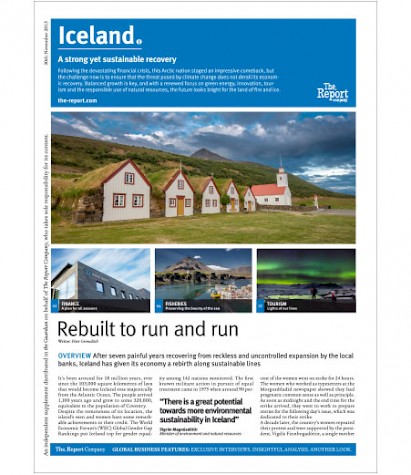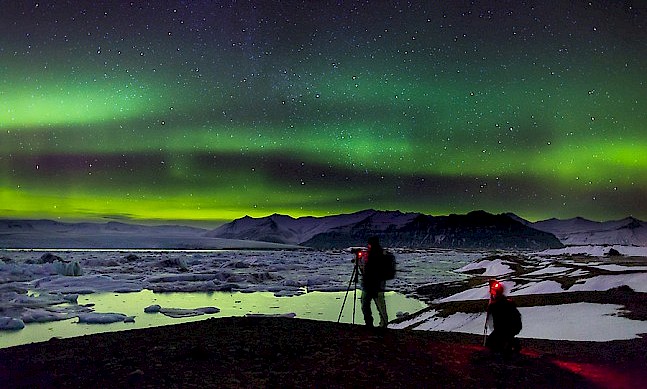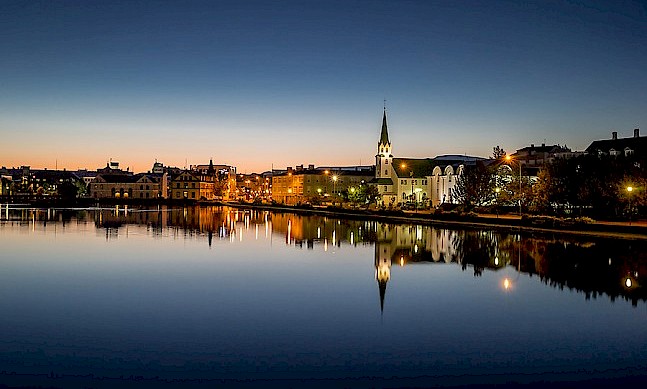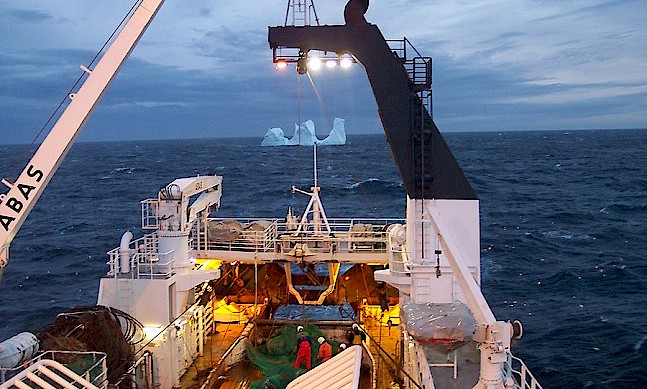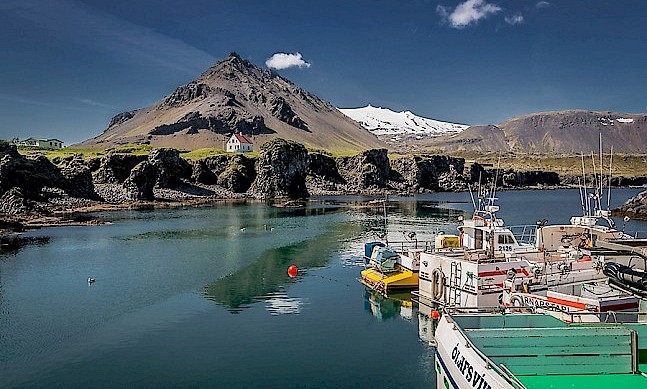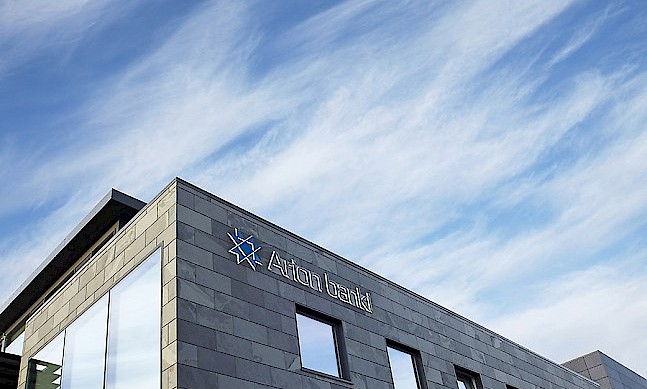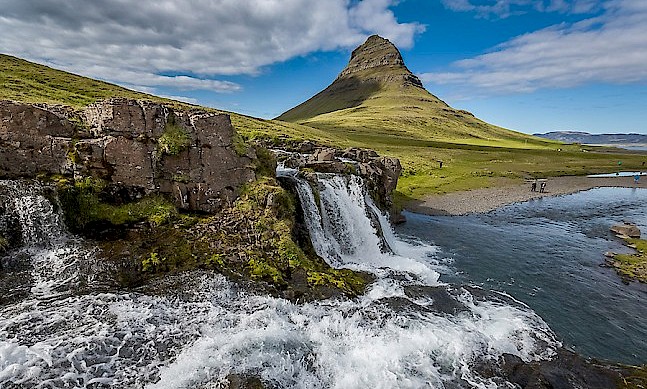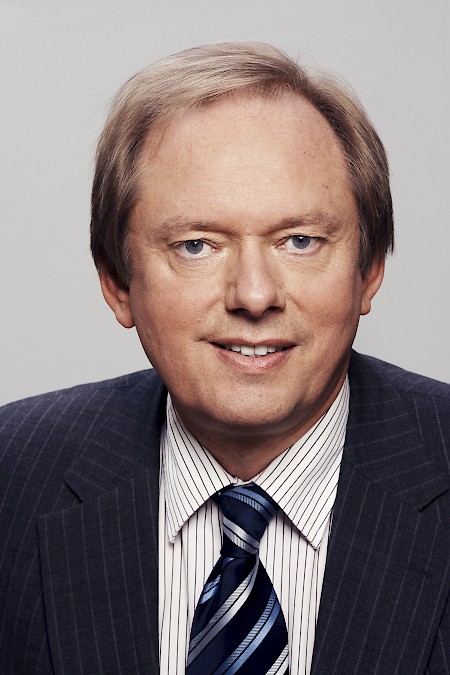 Thordur H. Hilmarsson, Director for Investment Promotion at Promote Iceland. Photo: Promote Iceland
Thordur H. Hilmarsson, Director for Investment Promotion at Promote Iceland. Photo: Promote Iceland
Promote Iceland is a government agency which spans three major sections: trade promotion, investment promotion and tourism promotion. Thordur H. Hilmarsson, who heads up the investment promotion unit, talks to The Report Company about the opportunities Iceland offers for foreign investors and the agency’s approach to getting the word out.
The Report Company: What are your main priorities?
Thordur H. Hilmarsson: At Invest in Iceland, we identify opportunities where Iceland has something to bring to the table and where we can be of interest. We know that Iceland cannot be everything to everybody; this is a tiny country and we have a small home market.
We have competitively-priced green energy, available via long term, fixed-price contracts. We also have a unique value proposition, wherein we can offer both hydro and geothermal energy. This has brought some fairly large industrial projects here from foreign investors within the aluminium industry.
We currently have three economic pillars: the heavy industries such as aluminium, the fisheries sector, and tourism. In addition to that, we have fast-growing knowledge-based industries, which we hope will form the fourth pillar.
TRC: Where do you see opportunities for investors?
THH: For a small open economy such as Iceland, it is important to diversify as much as possible. That has been the policy for the last 10 years or so, to seek out opportunities where Iceland can stay competitive in the eyes of foreign investors, and promote these projects to them. As a consequence of that, today we have a fast-growing data centre industry, as well as international companies in the fish farming sector.
Companies can make use of our unique value proposition of geothermal power; for example, if you site your project adjacent to a geothermal power plant, you gain access to multiple energy streams. This includes not only electricity, but also steam, CO2, hot water and even sea brine. Indeed, a company has recently put up an operation on the basis of this unique opportunity. There are companies working in fish farming, algae production and the production of human growth factors. We have a biotech company called ORF Genetics using this geothermal concept, and they are producing human growth factors through a completely green method which they then sell to universities and medical institutions all over the world.
“Our image has now been restored. We have had positive economic growth, all our economic indicators are moving in a positive direction, and we are again benchmarked in many ways as one of the best countries in the world”Post This
TRC: Has your focus changed over recent years?
THH: As regards foreign direct investment, we have shifted our marketing focus away from heavy industry-based projects into knowledge-based projects, utilising as many of our competitive advantages as possible. One example is the data centres. We have a lot of land and we have an ideal climate for data centres in that they can use ambient cooling for servers and thus save energy. We have inexpensive energy, be that geothermal or hydro, and a well-educated workforce.
We are actually rated by PricewaterhouseCoopers, McKinsey, and other international specialists as one of the top three locations in the world for data centre operations. We can confer huge cost savings for those who decide to locate in Iceland. For most data centres, this is a feasible location. The latency issue can be a problem for trading applications for banks, for example, but other than that, we are able to provide a service for almost all types of applications within the data centre industry.
TRC: What is the status of foreign direct investment in Iceland?
THH: Previously, we would see huge fluctuations in the FDI inflow because you would have, for example, a huge inflow from a single aluminium smelter and then very little for some years to follow. Today, the structure is different; we have a number of projects in the pipeline, but most are smaller. We prefer to have a growing number of small projects which create a lot of added value, are environmentally friendly, and are using all the benefits of Iceland.
TRC: What challenges does Iceland face in attracting investors?
THH: There are a number of challenges. First of all, we are not very well known as a country for investment, and we need to raise the profile of the country, investment-wise, to a much greater degree than we have been able to thus far. Secondly, we are a strategic location in many ways for some, but not for all, and the small home market eliminates a number of projects automatically.
We are never going to be the centre of the world for FDI, but the opportunities are definitely there, and they are very strong for specific sectors. We are a remote country for some of these otherwise very attractive sectors to us, so it’s all about finding projects that are not overly transport-sensitive. We have definitely had some of those opportunities.
“Iceland is one out of 11 or 12 countries in the world with which China has signed a free trade agreement.”Post This
TRC: How would you appraise Iceland’s image at the moment?
THH: I think we have overall a positive image, not only for tourism but also for trade and investment. We see a growing number of investors looking at Iceland as one of their options. Last year, we had some 40 to 50 visits from investors. We ourselves visited over 90 companies outside of Iceland. We have around 24 projects in the pipeline. That shows that there is interest and this is definitely at least double what it was during the crisis.
During the crisis, Iceland suffered a lot, not only financially but also in terms of its reputation as a country. I feel that our image has now been restored because we have a proven track record for the last three or four years. We have had positive economic growth, all our economic indicators are moving in a positive direction, and we are again benchmarked in many ways as one of the best countries in the world. The United Nations rates us as one of the best places to live, we are number one in gender equality and we are the most peaceful country in the world. All of these factors help us tell the story to investors.
Iceland is a safe country to invest in; it’s a country with stable infrastructure and political stability, and we have a number of success stories to tell, both as regards FDI and also about the Icelandic companies themselves. Those who are born local here are also born global; they have this small home market, so if they are going to grow, they need to get international, they need to export, and they need to go into the international market. And I’d say that Iceland has many companies who have actually succeeded on the international arena compared to the size of the population. It’s not one or two, it is 50 or 60 companies who have actually succeeded.
The challenge is to tell a story and be heard, because we are a small nation and we don’t have the same kind of media coverage for investment as we have for tourism, so that is something that we would like to work on.
“Companies originating in the US or Canada or Europe can set up value-adding processes in Iceland and then export without any tariffs to China”Post This
TRC: Where do investors come from?
THH: We have focused primarily on European and North American companies within sectors such as data centres, food production and food additives, biotech and so on. These are the preferred sectors and these are the preferred markets.
We have a very good relationship in both directions; we enjoy free trade with Europe because we are a member of the European Economic Area and thus a part of the common market, and we have a free trade agreement with Canada. We have most-favoured-nation status with the US, so for investors who would like to address both sides of the pond, we are a strategic nation. We are also extremely well connected by air. There are some 18 or 20 airlines calling at Iceland every single day, and during high season we have about 100 departures out of Iceland to Europe and the US and Canada every day. We are also extremely well connected by submarine cables, so for the data centre industry that is extremely important.
Last but not least, the free trade agreement with China came into force last year. Iceland is one out of 11 or 12 countries in the world with which China has signed a free trade agreement, and this opens up a tremendous amount of opportunities as regards foreign direct investment. Not so much maybe for the Chinese companies at the moment, but for companies originating in the US or Canada or Europe to put up an operation in Iceland and put in value-adding processes for exporting without any tariffs to China. We have identified 10 or 12 sectors where it is simply a no-brainer to put up operations in Iceland, and we are starting to promote these opportunities on a business to business level within these sectors.
“We have identified 10 or 12 sectors where it is simply a no-brainer to put up operations in Iceland”Post This
TRC: What would be your overall summary of the investment climate in Iceland?
THH: Iceland is definitely on the right track as a location for investment. We can offer benefits to those who utilise energy and need to reduce their carbon footprint or need to reduce costs. As a strategic location, we are becoming even more important because we are extremely well located. Our location is extremely strategic for those who are doing business on both sides of the pond, because we have ideal business relationship with the most important trade locations. We are a location worth looking at, definitely, and we feel that attention is growing. Because of the growth in tourism, because of the good story we can tell after the crash, we are getting some attention and that is definitely very good for our promotional purposes.


